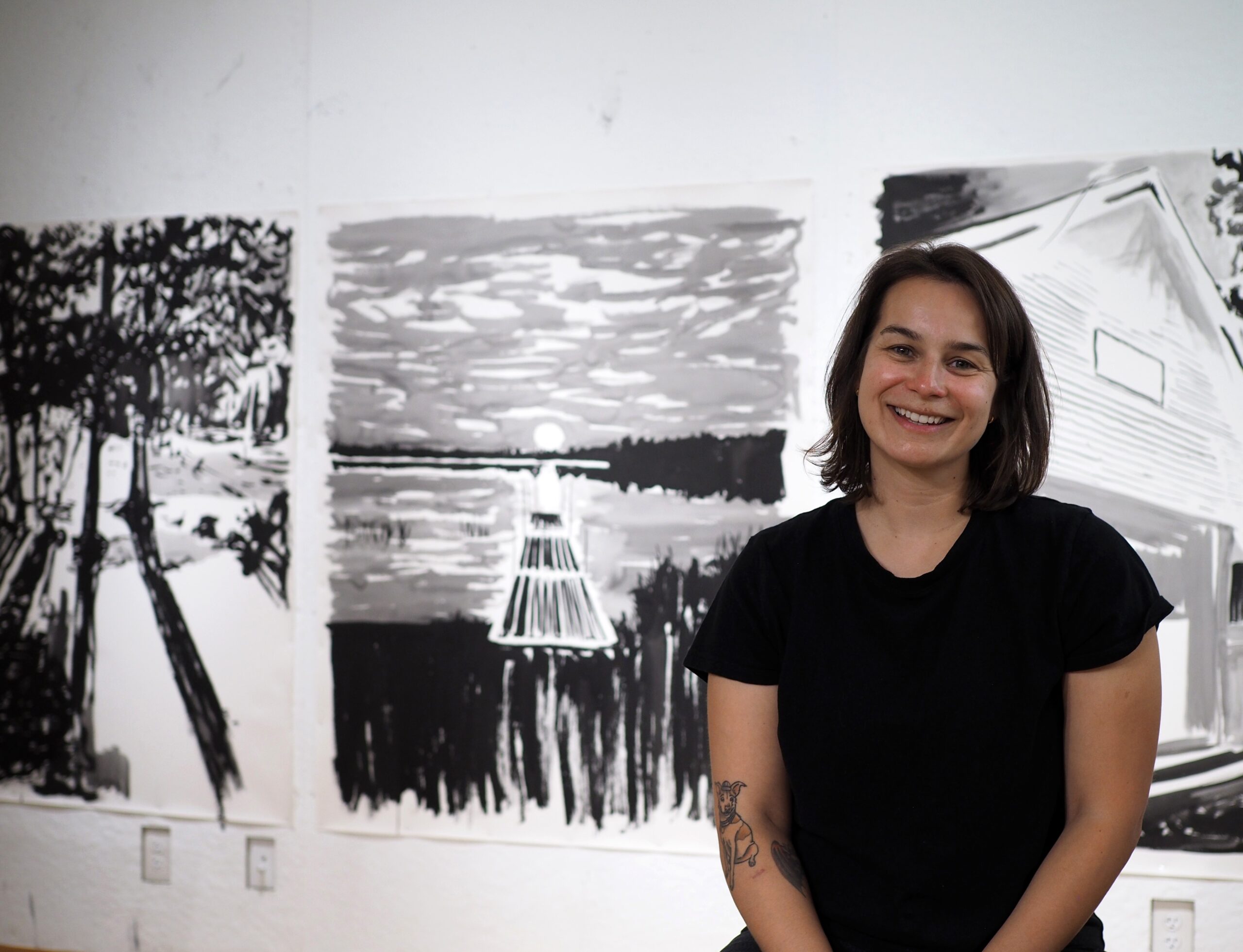Find your community.
It’s solid advice from Amber Zora, a multidisciplinary artist with a niche set of identities.
“I’m kind of in a precarious place to be an anti-war veteran and a woman,” says the photographer, monotype printmaker, and ink artist.
Growing up in small-ish-town Yankton, South Dakota, Zora ventured due north to Aberdeen, South Dakota, for a year of undergraduate studies. Realizing she was out of funds and a sense of direction, she joined the military in 2006 before returning home after bouts across the U.S. for further education and internships.
“When I left the military, I was like, ‘Yeah, that was one part of my life. Let’s move on to the next part.’ And I got rid of all of my military uniforms,” Zora says.
But while in grad school, she realized many of her peers hadn’t met anyone who had been deployed to Iraq, like herself, or Afghanistan.
Zora set out to find veteran artists. Anyone who was making work about their war experiences. The library, JSTOR – no luck.
So, she became one.

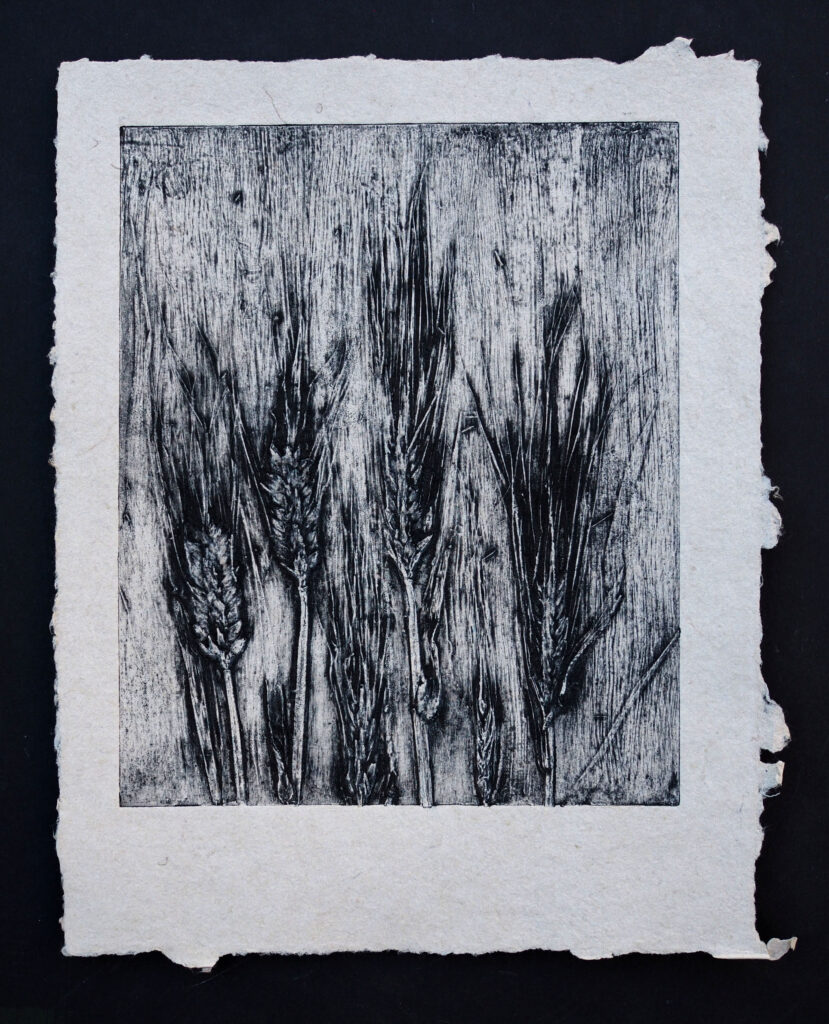
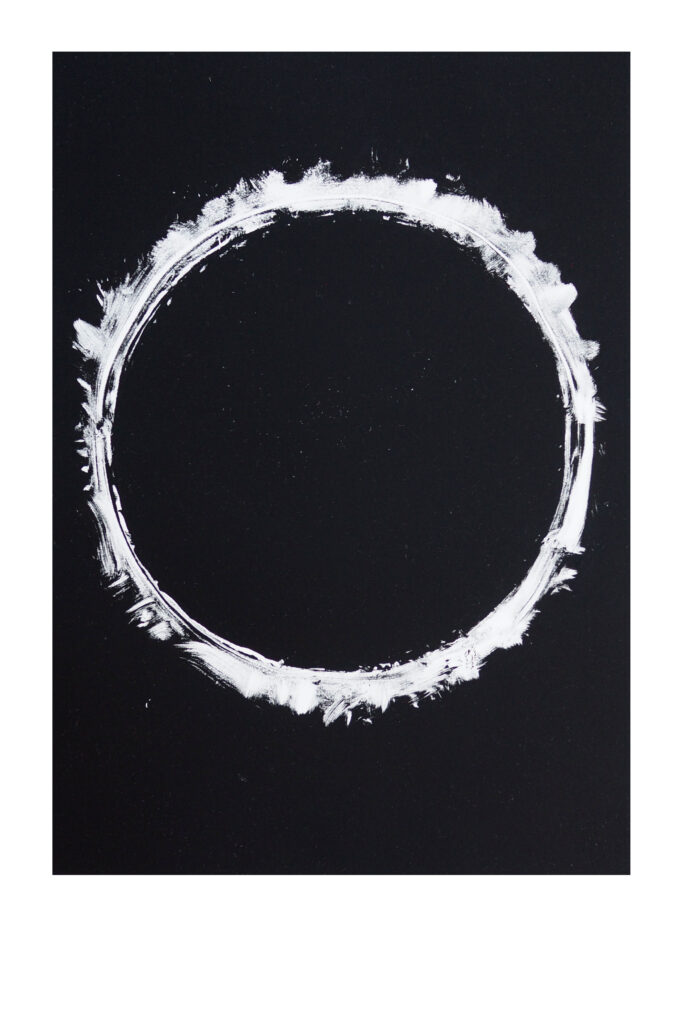
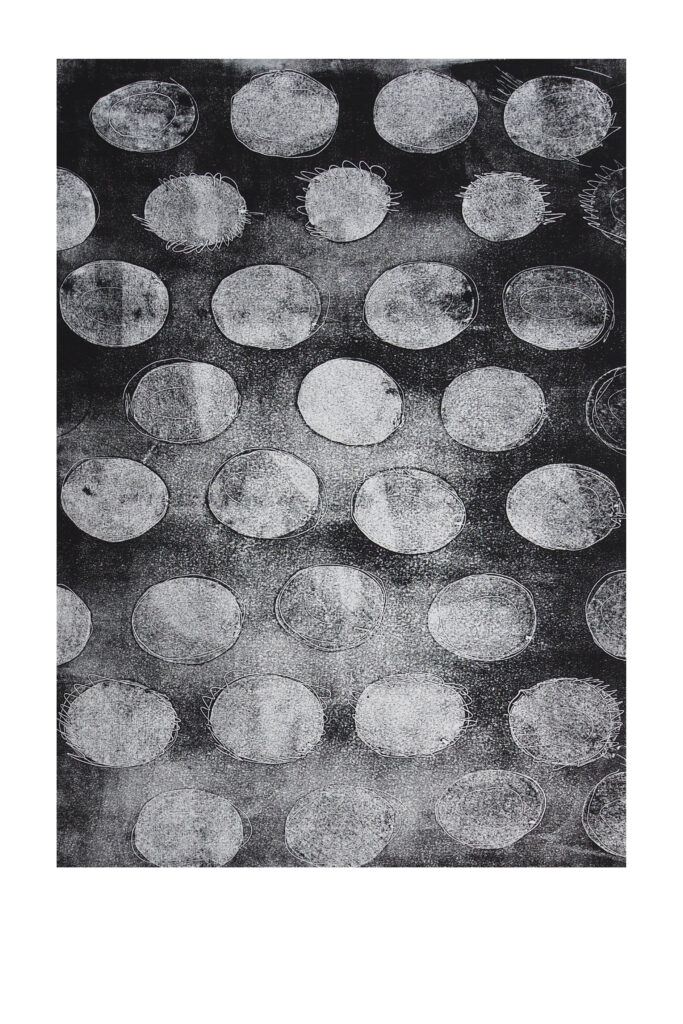
Zora, a current Bush Fellow, says if it weren’t for the Veteran Art Movement, she could have stopped creating all together. The world would have never seen her photographs about the Cold War (which also address climate change) or multimedia collection about being a woman in the military (“It’s a really isolating experience,” she says.)
“Even though there’s a lot of veterans,” she says, “a lot of veterans maybe don’t tell their own story … the stories are often told by Hollywood. And it was important for me as a veteran to tell my own story.”
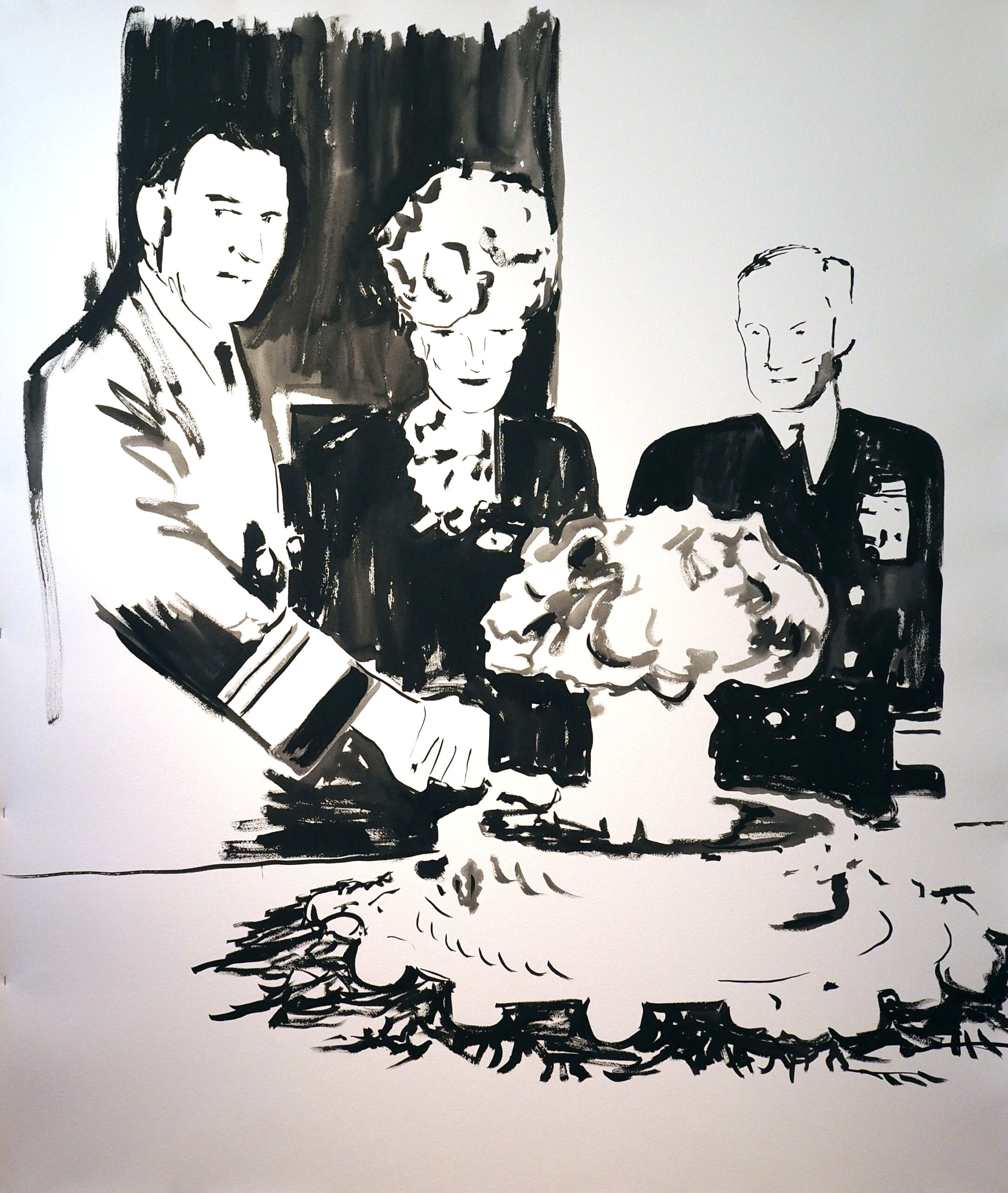
Over 70 ex-service members across the U.S. and Puerto Rico create with the Veteran Art Movement, making work that confronts and challenges war.
Her art began as a personal narrative—“coming back from a deployment, what artwork would’ve helped me through that experience?” Now, she asks the bigger questions: How does the military system operate, and why? What would we look like without it?
The latter question is tough for Zora.
“I can’t imagine who I’d be without that time in my life … It’s hard to separate,” she says, nodding to her art practice and GI Bill opportunities.
“I’m maybe similar to a lot of other writers that are just responding to their own experiences on the planet,” she says. “And mine just happens to also include being a part of the military and then looking back on that experience and thinking, like, ‘Oh, I really don’t agree with being a part of that war.”
Now, she’s part of a veteran art community.
For an upcoming book, Surviving The Long Wars, Zora and four other editors have compiled art on the history and impact of U.S. war (there’s a lot to it: experiences from underrepresented veterans and civilians, stories from Chicago’s Veteran Art Triennial and Summit last year, Indigenous history’s ties to it all).
“I think that we need to acknowledge these parts of our past so that we can reconcile and move forward into maybe a future that includes everyone being able to sleep in a warm bed at night.”
